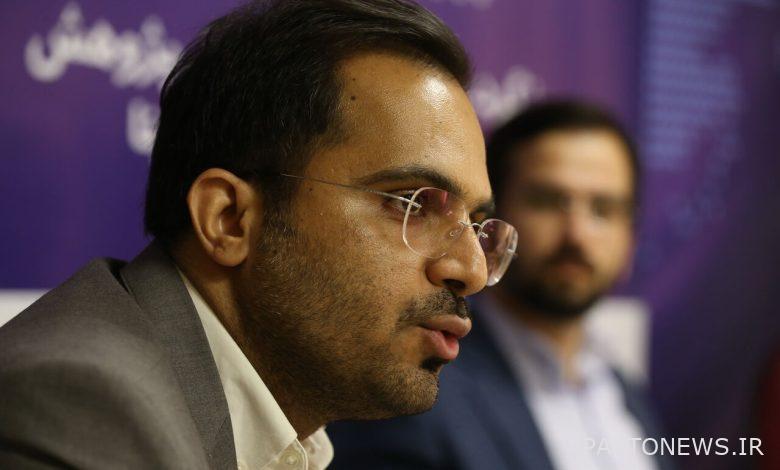There is a serious will to resume Tehran-Riyadh relations

“Kamran Karami” in an interview with IRNA political reporter, referring to the talks between Iran and Saudi Arabia in recent weeks, said: “Several variables and factors caused Saudi Arabia to move towards negotiations and detente with Iran; The first variable was US pressure on Saudi Arabia to decide and negotiate with Tehran.
The expert on Saudi affairs added: “Joe Biden” promises under pressure to assassinate Jamal Khashgechi to review US-Saudi relations, suspend arms sales, lower the level of Saudi Crown Prince with US Secretary of Defense and withdraw Patriot systems from King Salman base. Since Biden took office, it has been on the US government’s agenda, and Saudi Arabia has been forced to move toward de-escalation with actors such as Iran, Turkey and Qatar.
He reminded that Saudi Arabia first started de-escalating tensions with Qatar in early January 2021. He then sent pulses to Turkey and finally negotiated with Iran.
The director of the Saudi Studies Department at the Institute for Strategic Studies in the Middle East described the Saudis’ second variable in reviewing the development of relations with countries in the region, including Iran, as a threat to the Crown Prince’s successor. . These pressures made the current Crown Prince Mohammed bin Salman feel that tensions in relations with countries in the region were a threat to his kingdom’s future, and he was forced to move toward de-escalating tensions with actors and easing tensions to establish a more stable position within Saudi Arabia. Create.
“Many of Saudi Arabia’s economic and social reform plans based on the ‘2030 Vision’ have been overshadowed by falling oil prices and the corona pandemic,” Karami said. Bin Salman was welcomed in Saudi Arabia with this perspective, and the cancellation of these projects could threaten Bin Salman’s position in this situation.
The Middle East expert said the third influential variable in Riyadh’s recent policies was the easing of the crisis in the region. Prospects have been created for the gradual settlement of tensions between the two countries.
He pointed out: the mentioned variables played an important role in Saudi Arabia’s tendency towards negotiations with Iran, and in three rounds of negotiations and consultations between the parties, and the space for the fourth round of negotiations is being prepared.
Karami described the Yemeni crisis as one of the focal points of the Iran-Saudi Arabia dialogue and said: “Yemen is of great importance as one of the variables discussed at the regional level.” The Saudis expect these talks to be able to reduce Ansar Allah attacks. In this case, an atmosphere based on de-escalation between Iran and Saudi Arabia will occur and will lead to the recovery of the lost Saudi forces and a model of ceasefire will be established so that the Saudi coalition forces can regain their forces inside Yemen.
“Given the complexities of the Yemeni crisis in terms of the diversity of forces involved and the level of their differences, and Saudi Arabia’s unwillingness to give enough concessions to Ansarullah as one of the socio-political forces inside Yemen, the prospect of resolving the Yemeni issue is currently promising,” he said. Not specified.
According to the expert, the issues of the Arabian Peninsula are unlikely to overcome the wide-ranging atmosphere of tension in Yemen until a balance is struck between the forces involved inside Yemen.
He said: “In the talks between Iran and Saudi Arabia, there have been serious talks about Yemen, but the details of these talks are still unknown and it is not possible to comment on this with certainty, but if Yemen is one of the main axes of the Iran-Saudi conflict.” It can be said that the crisis can be resolved.
Karami added: “The Saudis have no choice but to accept a solution to the Yemeni crisis, because after six years of attacking Yemen, not only do they not have the upper hand, but they also have tensions with the Emirati people in the Transitional Council of Southern Yemen.”
“There is a serious will to resume Tehran-Riyadh relations,” said the regional researcher. It was Persia, but the Saudis in the Trump era hoped that Iran would have a lower hand and enter the negotiations in a state of weakness.
He said that years of misunderstandings and vague interpretations of the two countries have distorted the real image of the two countries, he said: until the two paths of building trust and balancing in Tehran-Riyadh relations, the current negotiations to the extent Stress management will remain and cannot become a satisfactory formula.
“If Iran and Saudi Arabia do not succeed in turning the current talks into a negotiating framework for regional security, we can not hope for fundamental changes in relations between the two sides,” Karami said.
The expert on regional issues said about Iraq’s role in mediating between Iran and Saudi Arabia: “Iraq was able to play its role in this period during the prime ministership of” Mustafa Al-Kazemi “. The minister should act impartially and pay some attention to Saudi Arabia.
“Iraq is looking to regain its regional role,” he said. کرد.
Karami reminded: “In these negotiations, we are witnessing the opening of Iran-Saudi Arabia relations and the two countries are inclined to reopen their consulates.”
He went on to say that securing maritime security in the Persian Gulf, returning Syria to the Arab League and normalizing Saudi Arabia’s relations with the Zionist regime are the focus of the talks between the two sides.
.

